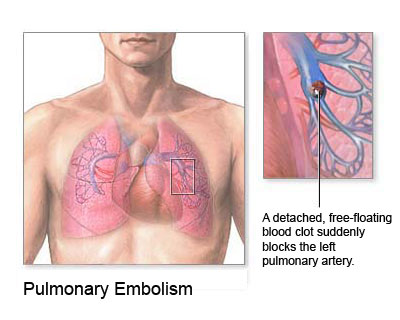| Main \ Types of Medical Malpractice and Surgical Malpractice \ Gastric Bypass Malpractice \ Gastric Bypass Complications | |
|---|---|
|
|
Gastric Bypass ComplicationsThe two most gastric bypass complications are:
Gastric Bypass Lawyers
Gastric Bypass ComplicationsThe two most common major complications of gastric bypass surgery are:
Bleeding or Leakage of Gastric FluidThe most common major complication of gastric bypass surgery is the leakage of gastric (stomach) fluid or bleeding into the abdominal cavity (peritoneum). Blood or gastric fluid leaking into the peritoneum can cause infection and resultant inflammation of the peritoneum, a condition called peritonitis. The prompt diagnosis and proper treatment of peritonitis is essential. A doctor or surgeon's failure to diagnose and treat peritonitis in a timely manner may result in serious injury or wrongful death. Pulmonary EmbolismPulmonary embolism during or after gastric bypass surgery is another major complication of gastric bypass surgery. The occurrence of pulmonary embolism during or after gastric bypass surgery is relatively rare, but the risk of serious injury and death associated with pulmonary embolism are much higher than the risks associated with gastric bleed and gastric fluid leaks. What is Pulmonary Embolism?"The term “pulmonary” refers to the lungs. "Embolism” refers to the sudden blockage of a blood vessel by a detached, free-floating blood clot that migrated (traveled) through the bloodstream. The word “embolus” refers to one such blood clot causing sudden blockage of a blood vessel and the term “emboli” refers to more than one embolus. Together, the terms “pulmonary embolism” or “pulmonary embolus” or “pulmonary emboli” refer to the blockage of the pulmonary artery caused by a pulmonary embolus or more than one pulmonary emboli. Most often, the pulmonary embolus or emboli causing pulmonary embolism begin migration through the bloodstream to the pulmonary artery either in blood vessels deep in the leg or from blood vessels in the pelvic area. Pulmonary embolism can cause severe damage to the lung and result in sudden cardiopulmonary arrest (heart and lung failure) and almost instantaneous death.
Obviously, proper precautions against pulmonary embolism must be taken before, during, and after gastric bypass surgery is performed. If pulmonary embolism occurs, accurate diagnosis and proper treatment must be immediate and effective to avoid cardiopulmonary arrest and death. There are two types of drugs that most often are used together to treat pulmonary embolism. The first type of drug used to treat pulmonary embolism is a blood clot dissolving, blockage removing enzyme called a “tissue plasminogen activator” (TPA). The other type of drug that is used to treat pulmonary embolism is called an “anticoagulant” (blood thinner), which helps keep additional blood clots from forming. While pulmonary embolism is less likely to happen than gastric leak or bleeding, the chance of death from pulmonary embolism is much higher. The reason the chance of death from pulmonary embolism is much higher than from bleeding or gastric leak is because of the very short period of time within which pulmonary embolism must be accurately diagnosed and properly treated for there to be a chance for survival. Often, pulmonary embolism results in sudden death, before there is time for diagnosis and treatment.
Table of Contents(click on link to be taken to page)
Where may we take you?
|
HurtbyaDoctor.com is a service of Tuteur & Associates, LLC. We are committed to empowering the victims of avoidable injuries through zealous legal representation and compassionate support. We have collected millions of dollars for injured people and their families in the past and are dedicated to continuing our success in the future. Together, we can make life better and safer for everyone. "The choice of a lawyer is an important decision and should not be based solely upon advertisements." Your choice may affect you and your family for the rest of your lives. This website and the information contained herein is intended for general informational purposes only. This website is not intended to provide any advice, legal or otherwise, about any specific case or legal matter. Your accessing, viewing, use, or response to this website does not create an attorney-client relationship. An attorney-client relationship is created only upon our acceptance of your case after consultation. |



